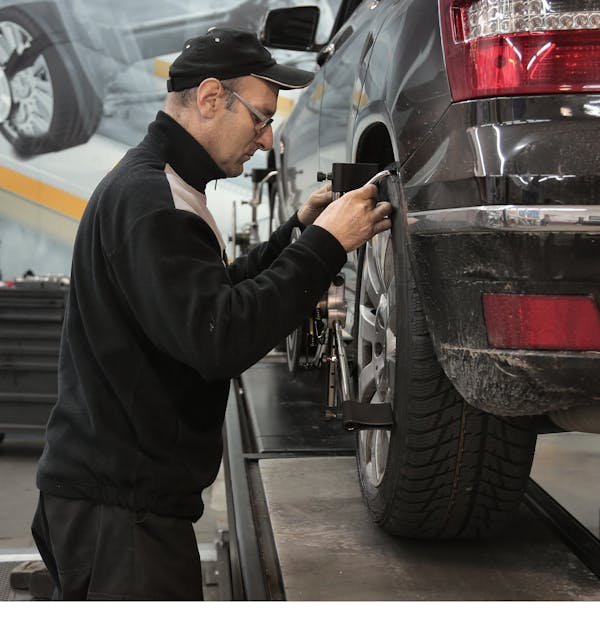Mechanics are skilled tradespeople who use tools to build, maintain, and repair machinery, especially cars. This is a physical job that involves lifting heavy objects and working in uncomfortable positions for long periods. Check out more at auto repair!
When hiring a mechanic, it is important to be upfront about the role and its responsibilities. This will help you to retain the mechanic for the long haul.
Job description
Mechanics are skilled tradespeople who repair and maintain machinery and engines, including cars. They use special tools and work in shops or garages. Mechanics typically have a high school diploma or equivalent and receive on-the-job training. They also participate in ongoing professional development to stay current with industry trends and best practices.

Depending on the type of mechanic, a career in this field can be very varied. Some mechanics work on automotive vehicles, while others specialize in mechanical equipment for the oil and gas industries. Those who work on automobiles are called automotive mechanics, while those who work on oil and gas equipment are called heavy equipment mechanics or A&P mechanics.
Those who are interested in a career as a mechanic should have strong mechanical and technical skills, attention to detail, and an ability to solve problems. In addition, they must be able to communicate with customers and follow complex safety procedures. They often spend a lot of time on their feet and must wear proper footwear to protect themselves from injury.
Education and training requirements
There are a few paths to becoming an auto mechanic. You can start in high school or at a trade school, and you can also enroll in a program that prepares you for ASE certification. These programs usually last 2-4 years. Some states require credentials for mechanics, and you may need to take a licensing exam.
Some mechanics specialize in specific types of cars. For example, those who work on air conditioning systems earn a special certification from the Environmental Protection Agency. Mechanics who want to advance in their careers often get advanced training in different areas, such as electronics and automotive computer diagnostics.
In addition to their technical knowledge, mechanics must also have excellent customer service skills. They are often the face of their shops, and they communicate with customers to explain repairs and answer questions. They also need to stay updated on new technology, so they can continue to offer the best services.
Work environment
According to the BLS, auto mechanics often work long hours, including evenings and weekends. This makes it important for mechanics to have a comfortable workspace that’s clean and safe. A well-functioning workplace can also help attract and retain skilled technicians.
Work environments vary by specialty. For example, truck mechanics work in an area called a pit; customers drive their vehicles into the open area, and the mechanic works underneath them. This type of environment is usually not well-ventilated and can be very hot during the summer. Other workplaces include industrial settings, where mechanics repair machinery and equipment. These mechanics often need to climb ladders or work in confined spaces.
Other specialties include radio mechanics, who work with two-way communication systems, and heavy equipment mechanics, who repair large machines used in construction, mining, or forestry. Some even work on aircraft, which requires them to adhere to strict safety protocols. Mechanics also need to use a variety of tools, such as screwdrivers, wrenches, and pliers.
Job outlook
Despite rapid technological change, mechanical engineers remain in high demand. They possess a unique set of skills that robots and automation cannot replicate. They also have a strong imagination, which allows them to visualize problems and turn them over in their minds until they find a solution. Moreover, they are skilled at developing prototypes of machines and equipment that will make them more productive and safer to use.
Mechanics who excel at their craft can become master mechanics, overseeing the work of other mechanics. They can also take on leadership roles at companies. However, the most important trait of a master mechanic is the ability to collaborate with others.
Those who are considering a career as a diesel mechanic can find out more about the job outlook for their field by visiting websites like O*NET Online and the Bureau of Labor Statistics. These sites offer a breakdown of job projections at the state level. They can also provide information about the education and training requirements for different careers.